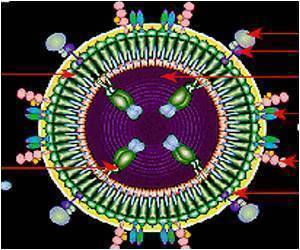- Since 2005, World Immunology Day is observed on 29 April each year to raise awareness on disorders relating to the immune system
- World Immunology Day was marked by Primary Immunodeficiency Patients Welfare Society and Aster CMI Hospital on 26 April 2017
- The event was created to bring about a sense of caring and concern for patients suffering from Primary Immunodeficiency diseases (PID)
What is Primary Immunodeficiency Disease (PID)?
Primary immunodeficiency diseases (PID) are a group of more than 300 rare, chronic disorders of the body’s immune system where parts of the immune system are dysfunctional or missing. Most of these diseases are genetic and manifest at birth or in early childhood. Some of these are X-linked disorders affecting only males while others affect both genders equally. Some of the PIDs include:- Agammaglobulinemia: X-Linked and Autosomal Recessive
- IgG Subclass Deficiency
- Severe Combined Immune Deficiency and Combined Immune Deficiency
- Wiskott-Aldrich Syndrome
- Chronic Granulomatous Disease and Other Phagocytic Cell Disorders
World Immunology Day - Event by Primary Immunodeficiency Patients Welfare Society and Aster CMI Hospital
Primary Immunodeficiency Diseases (PID) is one of the most common genetic immune disorders globally, and in India. In India, it occurs 1 in every 2000 children. PID often goes undiagnosed or misdiagnosed since the child presenting repeated, chronic infections, is often mistaken as weak. Even doctors are not sufficiently informed on diagnosis, and it is only when an immunologist is brought into the picture that the child gets the right diagnosis. It takes anywhere between 1 and 8 years to get the right diagnosis, and parents end up running from pillar to post while the child suffers repeated painful infections which can be debilitating.According to the Indian Society for PID, there are an estimated one million patients in India. In Bangalore alone, the figures could be around 5000, despite there being very few known cases. The PID Patients Welfare Society (PIDPWS) was first established in 2012 by Mr. M.B. Patil who was moved by the plight of these patients and families. He was concerned about the social, economic and emotional suffering of patients and families and decided to establish a platform to create a sense of solidarity and help these people. The society’s mission is to:
- create awareness about PID within the general public as well as medical communities
- educate the public on diagnosis and treatment
- medical camps for patients and families
- support children getting treatment in hospitals
- ensure timely availability of medicine and negotiate affordable prices
- improve the quality of life of people with PID
The PIDPWS conducts public programs every year on World Immunology Day to raise public awareness and educate people. This year was special as Aster CMI Hospital stepped in to support the society and patients. PID patients did not have a comprehensive care center until Aster CMI hospital was established. It was a harrowing routine for patients to go all the way to Post-Graduate Institute, Chandigarh (PGI) for diagnosis and treatment. The establishment of Aster CMI hospital changed the outlook of PID for patients as Dr. Sagar Bhattad (from PGI, Chandigarh) came forward to create a comprehensive care program for the patients. In Dr. Bhattad’s estimate, there are nearly 5000 cases of PID in Bangalore, although very few are diagnosed and documented. His aim is to make life easier for PID patients not just with diagnosis but also treatment and other care facilities. He is supported whole-heartedly in this endeavor by Aster CMI CEO, Dr. Nitish Shetty and the entire team of pediatricians and intensivists at the hospital.
The program was a press conference to facilitate media outreach. The program brought together nearly 20 patients and families to create a sense of solidarity thereby dispelling the feeling of “being alone and fighting PID.” The team from Aster CMI which included immunologist Dr. Sagar Bhattad, pediatric intensivist, Dr. Chetan Ginigeri and senior neonatologist, Dr. Parimal Thirumalesh shared their thoughts about PID and their efforts to create a quality life for the patient group. CEO Dr. Nitish Shetty shared the platform and spoke about the need for hospitals to give back to society. On the occasion of the 30th year of Aster CMI group, the hospital was focusing on enabling all patients (regardless of ability to pay) to access best quality healthcare.
The program also provided an open platform for patients and families to share their experiences with PID. Ms. Rukhsana Haneef, Secretary of PIDPWS, shared her family’s experience of PID. Her nephew was diagnosed with PID following a diagnostic odyssey. She shared the trauma of diagnosis and the shock experienced by the family who had to deal with regular treatment for the boy. Rukhsana also spoke about the considerable financial burden of IVIG treatment which costs nearly INR 15000 per vial. While children require 2 units per month, most adults require around 3-4 units per month where the total cost is around INR 60,000. Rukhsana spoke about the role of PIDPWS in lobbying the state government to give a budget allocation for PID in government hospitals, so that patients can avail free IVIG the way Hemophilia patients avail free factor at government hospitals and centers.
Aster CMI and PIDPWS also raised funds for patients through the Lion’s Club. A cheque was presented at this program towards the costs of treatment for patients.
The event clearly brought to light the need for the media to report on rare diseases in India and the role of patient groups in advocating and lobbying for better policies and protocols relating to rare diseases.
Reference:
- Day of Immunology - (https://www.efis.org/public-outreach/day-of-immunology/index.html)
- April 29 is the International Day of Immunology! - (http://www.iuisonline.org/index.php%3Foption%3Dcom_content%26view%3Darticle%26id%3D236:april-29-is-the-international-day-of-mmunology%26catid%3D35:news%26Itemid%3D73)
- Day of Immunology - (http://www.immunology.org.au/day-of-immunology/)
- About Primary Immunodeficiencies - (http://primaryimmune.org/about-primary-immunodeficiencies/)
- Gene therapy - (http://www.piduk.org/whatarepids/treatment/genetherapy)
- About PIDs - (http://www.ispid.org.in/About.aspx)
Source-Medindia










